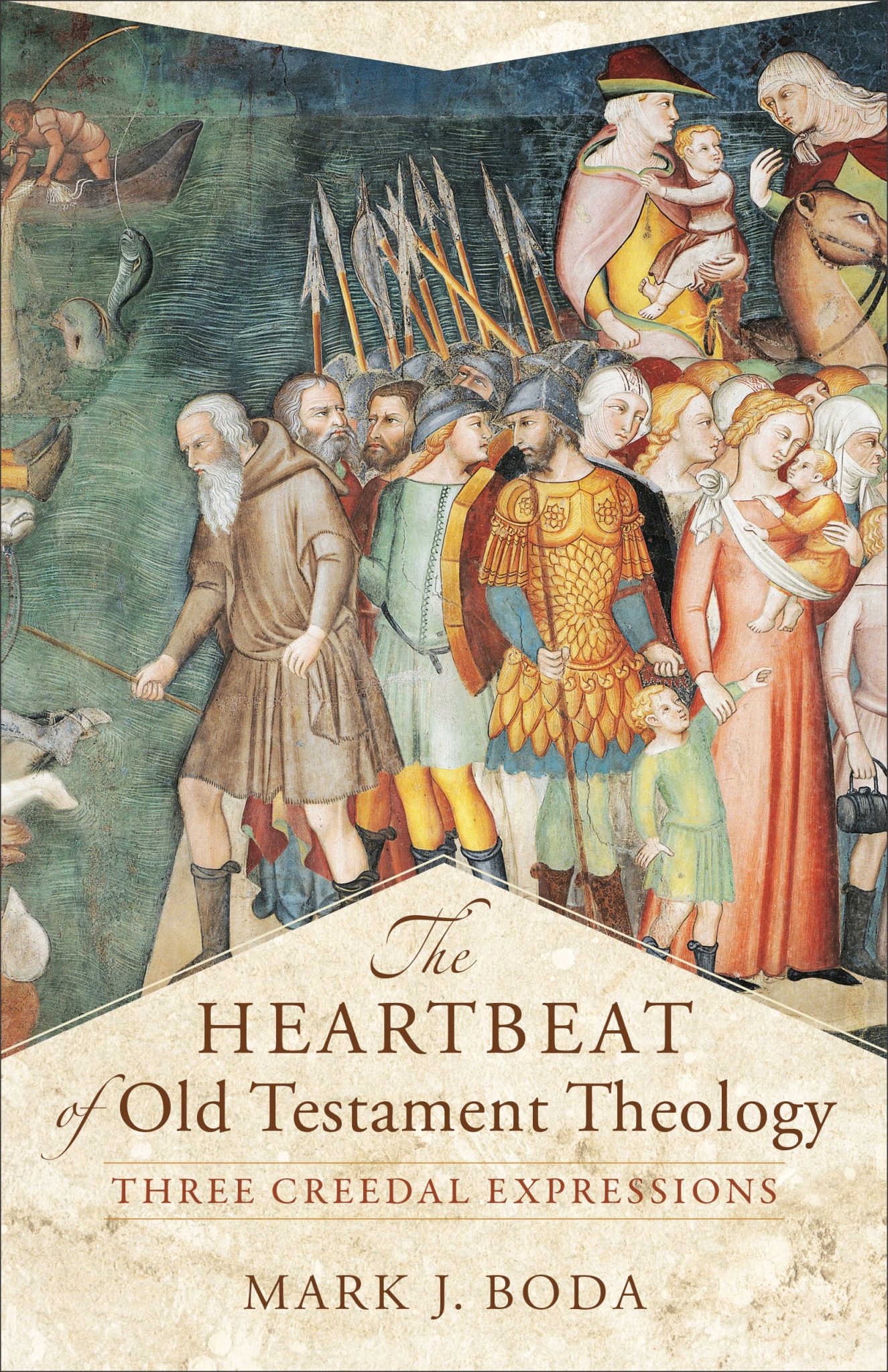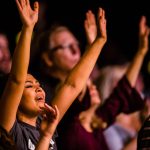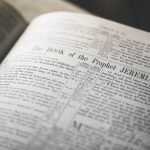Since theology is complex, many theologians feel the need to write massive, multi-volume books to do justice to every nuance. Many of these books are commendable, but Mark Boda has written a helpful and blessedly short Old Testament (OT) theology, The Heartbeat of Old Testament Theology: Three Creedal Expressions. It’s clear, accessible, and barely 180 pages.
Boda, professor of Old Testament at McMaster Divinity College in Hamilton, Ontario, “identifies core expressions of God that appear throughout the OT canon” (7). He locates the “heartbeat” of OT theology in three creeds or “rhythms”: narrative, character, and relational. Together, “they are the core values of biblical theology that pump life into every part of the OT” (77).
Three Creeds, Three Rhythms
The “narrative rhythm” is God’s actions in history, specifically the story of God’s people. Israel often declares what God has done in their liturgies, such as the recounting of God’s deeds in Joshua 24, or the confessions in Deuteronomy 6 and 26. Boda writes that “this rhythm can be felt in nearly every book [of the OT]” (15). The OT doesn’t collapse theology into abstractions about God, but summarizes faith through storytelling.
The Old Testament doesn’t collapse theology into abstractions about God, but summarizes faith through storytelling.
The “character rhythm” concerns the active character of God as expressed in Exodus 34:6–7, where he reveals his name and attributes to Moses: God is compassionate, gracious, slow to anger, merciful, abounding in steadfast love and faithfulness, but also executes justice. In this way, theology is expressed as God’s redemptive character (29). Exodus 34:6–7 is often called the “Yahweh creed,” since forms of it appear throughout the OT in contexts of praise, prayer, repentance, forgiveness, and even prophetic judgment.

The Heartbeat of Old Testament Theology: Three Creedal Expressions
Mark Boda
The Heartbeat of Old Testament Theology: Three Creedal Expressions
Mark Boda
This volume explores the theological heartbeat of the Old Testament by examining three big ideas that communicate the Old Testament’s redemptive theology.
Highly respected scholar Mark Boda shows how three creedal expressions—the narrative, character, and relational creeds—recur throughout the Old Testament and express its core redemptive theology, in turn revealing how the redemptive pulse of God expands to all of creation.
He also traces these redemptive and creational pulses into the New Testament and shows their relevance for today’s Christian community.
The “relational rhythm” of the OT centers around the biblical covenants. Boda focuses on a fundamental phrase found in Leviticus 26:12: “I will walk among you and will be your God, and you shall be my people.” Indeed, echoes of this verse can be found throughout the OT (Exod. 6:7; Deut, 4:20; 2 Sam. 7:22–24; etc.). And like the previous creeds, “the relational creed is an encapsulation of theology, only utilizing a different form” (55).
The remaining chapters explore the implications. Boda notes a few passages where the creedal rhythms integrate into one tight form, highlights how the creeds aren’t simply focused on the redemption of Israel but all creation, shows where they can be discerned in the NT, and applies them to the church, culture, and creation today. He closes with a sermon, which invites readers to respond to God as articulated in the three creedal expressions.
Key Takeaway
Boda does a fine job identifying key themes of the Bible—it’s difficult to read the OT closely and not highlight the three creeds, especially the character and relational ones. Those specifically point to God’s nature, and they make understanding the OT easier—God is gracious, loving, and righteous, and in his providence he makes covenants with his creatures to bring about his redemptive purposes. This is probably what most believers desire to know about God when they pick up their Bibles.
The problem is when believers start their Bible reading plans in January, only to get bogged down by long and repetitive OT narratives filled with graphic descriptions of sin, sacrifice, and such. This is where Boda makes a key contribution. He shows that reciting God’s past acts—no matter how foreign to us—is creedal, and should therefore be a key component of biblical worship. We should recite the acts of God as worship to him.
By doing so, we’re simply following God’s own example throughout the OT, where we hear God reminding Israel of their story time and again: “I am the LORD your God, who brought you up out of the land of Egypt.” In brief, our task in worship is what Deborah and Barak sang in Judges 5, where the people “repeat the righteous triumphs of the Lord” (Judg. 5:11). Israel needed to hear about God’s redemption over and over. It’s a story we must rehearse, too. Boda encourages the church to embrace and value this practice, and it’s the greatest strength of the book.
Omission
One omission is glaringly obvious, and taints an otherwise helpful book. To echo Job’s question, where shall wisdom be found? In Boda’s approach, wisdom as a theological topic is virtually non-existent. I noted only one paragraph devoted to wisdom literature (102), but wisdom (divinely inspired reflection on all aspects of life) is an important rhythm in Old Testament theology.
Wisdom is grounded in the doctrine of creation, provides skills for survival, points to the future, and provides a fundamental imperative for life: “The fear of Yahweh is the beginning of wisdom” (Prov. 1:7). To neglect the importance of wisdom in Israel’s history is a massive mistake. Boda’s work would be improved if he addressed this theme.
The Heartbeat of Old Testament Theology can feel academic at times; several chapters include a fair amount of Hebrew and Greek. The overall message, however, is worth considering. The omission of wisdom aside, there is much to learn, particularly from Boda’s emphasis on narrative as part of God’s design for shaping the response of his people in worship. If you’d like a short overview of several key expressions that form our core view of God, this book would be a good starting place.




































